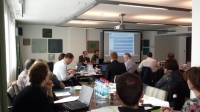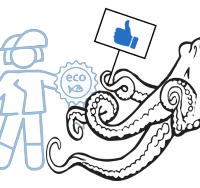In
March 2016, 40 representatives from 14 Member States participated in
the first FARNET Managing Authority (MA) meeting, which took place in
Brussels. The meeting aimed to support the setting up of delivery
systems, the launch of national networks, and the development of
monitoring and evaluation systems for CLLD. While
progress in implementation varies among the MAs, it is expected that
most FLAGs and their strategies will be approved by the end of the
summer.
Presentation by some of the Managing Authorities showed the
various tools and processes being used to improve the efficiency of
delivery systems (e.g. in
Finland,
France,
Spain,
Sweden). The
discussion also highlighted the benefits of learning from the last
programming period. The focus on results was
highlighted as a key principle of the new programming period.
Presentations by FAME (Fisheries and Aquaculture Monitoring and
Evaluation) Support Unit and two FLAGs further reinforced this by
demonstrating the usefulness of monitoring that goes beyond the
compulsory obligations. While recognising the challenges, there was a
consensus among the participants on the importance of moving ahead
quickly with the development of simple but effective monitoring and
evaluation systems.
MAs also recognise the useful
contribution of national networks in supporting CLLD implementation,
especially in terms of facilitating knowledge sharing, capacity
building, and peer learning, as demonstrated by the Swedish example.
For the current period, ten new national networks will be set-up,
bringing the total number of EMFF-CLLD networks to 19.
Read about the meeting and find all presentations
here.






 The world’s first certified sustainable octopus fishery
The world’s first certified sustainable octopus fishery 













